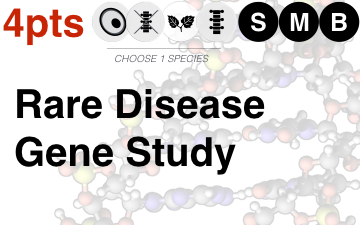A rare disease is any disease that affects a small percentage of the population.
Most rare diseases are genetic, and thus are present throughout the person’s entire life, even if symptoms do not immediately appear. Many rare diseases appear early in life, and about 30 percent of children with rare diseases will die before reaching their fifth birthday.[1] With a single diagnosed patient only, ribose-5-phosphate isomerase deficiency is considered the rarest genetic disease.
No single cutoff number has been agreed upon for which a disease is considered rare. A disease may be considered rare in one part of the world, or in a particular group of people, but still be common in another.
Global Genes have estimated that more than 300 million people worldwide are living with one of the 7,000 diseases they define as “rare” in the United States.[2]
(From: Wikipedia, June 2016)


